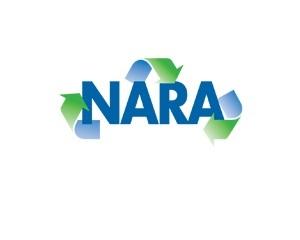Feed mill to convert turkey waste into energy
Published: July 24, 2008
Source : The Daily News (Michigan)
An Allendale businessman hopes to take that one step further.
Sietsema Farms Feeds in Pierson Township just south of Howard City is preparing to install a biomass facility in a new building it's going to construct to convert turkey waste into steam and electric energy for feed production.
The $3 million operation will be a combined heat and power system providing the equivalent energy of 8,463 barrels of oil annually. It will be housed on a 40-acre site at 19117 Lake Montcalm Road next to the Sietsema grain elevator - a landmark in Montcalm County's Panhandle region.
Sietsema Farms Feeds owner Harley Sietsema plans to begin work on the new 15,000-square-foot operation by late August or early September.
"This will make agriculture environmentally sustainable and economically sustainable," he said. "It's just a matter of getting the most out of all your products and byproducts."
From turkeys to big business
Sietsema grew up on a dairy farm and first started his own turkey farm on the site back in 1979.
Today he heads up Sietsema Farms, which is headquartered in Allendale and has 38 associated farms within a 75-mile radius.
Sietsema also owns a hardware store in Allendale.
He operates his business along with the help of his two sons, Rick and Jamy, and daughter, Tina Brown.
Five years and going strong
Sietsema Farms Feeds opened five years ago this month in Howard City's Renaissance Zone.
Powered by a 250-horsepower boiler and a 500-horsepower pellet mill, the business produces 400 tons of livestock feed pellets per day, 3,000 tons a week and 125,000 tons each year.
The pellets are made from corn, soybean meal, vitamins, nutrients and vegetable oil to add caloric content. Two towering bins each hold 370,000 bushels of dried corn as storage while a warehouse is stocked full of ingredients.
A computer control room ensures the exact science of pellet creations.
"We take in raw materials and we turn those materials into pellets," said Sietsema Farms Feeds Manager Rick Rose, who lives in nearby Winfield Township. "We've got about 22 different recipes. It depends on the animals and their stage of growth."
Eight people work at the Pierson Township site but 37 are on the payroll.
Making most of manure
A few years ago, Sietsema wondered what to do with all the turkey waste accumulating at his farms.
Turkey manure makes effective fertilizer due to its high nutrient content but Sietsema had so much of it that he couldn't get rid of it quickly enough.
He began to look at alternative energy prospects - specifically gasification, which converts carbonaceous materials into carbon monoxide and hydrogen by reacting the raw material at high temperatures with a controlled amount of oxygen or steam.
Gasification is an efficient method for extracting energy from many different types of organic materials and is also a clean waste disposal technique.
Sietsema's turkey waste comes from eight farms located in Allendale (270,000 birds), Coopersville (220,000 birds), Fremont (400,000 birds) and Ravenna (210,000 birds), according to Norma McDonald, operating manager with Phase 3 Renewables in Cincinnati, Ohio, which is working with Sietsema Farms Feeds on the biomass project.
"Each year, 11,000 to 12,000 tons of litter is generated and removed from the production areas and stored in environmentally sound, covered storage buildings," she explained. "The litter is then trucked to various local fields to be applied as crop fertilizer.
"However, due to the large quantities produced, most of it is being trucked to other farmers as far as 100 miles away," said McDonald.
Saving energy, making money
In October 2007, the U.S. Department of Agriculture (USDA) awarded Sietsema Farms Feeds a grant and loan guarantee to construct the renewable energy project.
Sietsema competed with more than 900 applicants for the $500,000 grant and $700,750 loan guarantee from the USDA Rural Development Section 9006 Renewable Energy Program.
Sietsema said he doesn't expect to see a profit from the new venture for three or four years but does expect to come out on top eventually as energy costs continue to rise.
"The first couple years it's going to be an operating loss," Sietsema said. "But it's a win-win situation. Three years ago we couldn't give turkey litter away. Two years ago we could get $5 a ton. Today we can sell all we want for $25 or $30 a ton."
He said the cost of natural gas and electrical purchases is more than $500,000 annually at Sietsema Farms Feeds. Production currently consumes 28,000 therms of natural gas per year at the business. Another 2.85 million kilowatt hours of electricity are purchased.
After meeting the energy requirements for the mill, the new biomass facility will sell excess electricity via a utility grid. Negotiations are under way with Spartan Renewable Energy in Cadillac, a recently formed division of the Wolverine Power Supply Cooperative in Cadillac, to purchase the excess power.
Working with the state
Increased regulations, encroachment of residential development and rising energy costs all are contributing to more challenging business conditions for Michigan's farmers.
Manure management is particularly impacted by these three factors, requiring farms to install increased storage, drive farther to spread manure on scattered fields and spend more money transporting it.
Sietsema currently spends more than $200,000 annually on equipment, labor and fuel to comply with Michigan's Comprehensive Nutrient Management Plans. The completion of the alternative energy project will enable his company to reduce those expenses and convert the waste to value-added energy and ash.
Animal waste conversion technologies such as this will open up the opportunities for expansion in the livestock industry in a way that addresses potential negative impacts, turning the waste into a vehicle for environmental and economic improvement.
"It's a way to solve a couple problems and a way to be environmentally friendly," Sietsema said.
Spurring the state
The project will boost Michigan's economy by involving five other state companies.
Heat Transfer International in Dutton is fabricating the gasification system, Williams International in Walled Lake will provide an air turbine electricity generator, Johnson Boilers in Ferrysburg will supply a waste heat boiler, Newkirk Electric in Muskegon is engineering the connection to Great Lakes Energy and TopLine Equipment in Zeeland will install feedstock handling equipment.
The equipment, construction and integration of the Sietsema Farms Feeds' project will entail 25 to 30 direct construction-related jobs as well as indirect employment during the eight-month construction and commissioning period.
"The economic activity from this project will have a significant beneficial impact on the community," said Montcalm Alliance Executive Director Franz Mogdis. "The project allows Sietsema Farms Feeds to expand their business, paves the way for increased economic activity in and around the Renaissance Zone and supports the county's efforts to develop alternative energy initiatives."
U.S. Rep. Pete Hoekstra, R-Holland, noted the positive impact of Sietsema Farms Feeds on the state's economy.
"Such renewable energy projects are a growing component of West Michigan's agricultural industry and critical to the transition to a 21st century clean energy supply," he said.
"The federal investment in Harley Sietsema's family farm will help to support the state's agriculture industry - a pillar of Michigan's economy - and the effort to become more independent of foreign sources of energy," said Hoekstra.
Source
The Daily News (Michigan)Related topics
Join to be able to comment.
Once you join Engormix, you will be able to participate in all content and forums.
* Required information
Would you like to discuss another topic? Create a new post to engage with experts in the community.
Create a post




.jpg&w=3840&q=75)